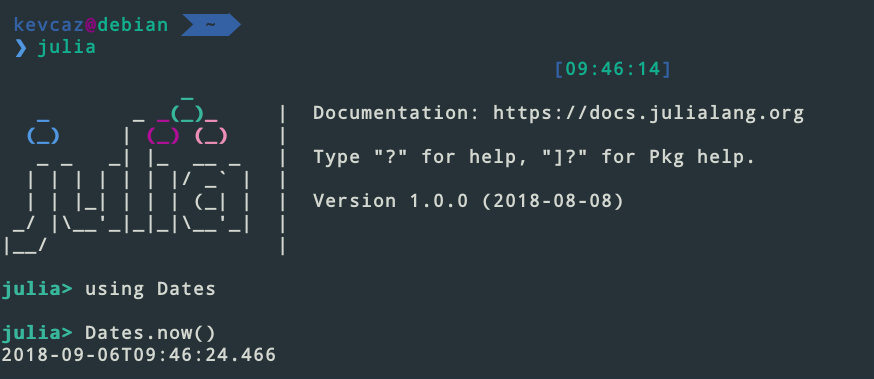You may have already heard about Julia. Well, I am not
(yet) a regular user but Julia’s performances are impressive, the langage is
well-thought and the community is growing super fast, I therefore pay careful
attention to what’s happening on their side. Recently, version 1.0.0
was released, so I decided to replace my local version v0.4.7.9 I installed with apt-get (note that currently v0.7.0-2 is available for Sid).
There are two ways to install Julia for Debian without apt-get.
First one is to go on the website and download the Generic Linux Binaries for x86. Second
is to follow the guidelines on the README file of the Github repository to compile Julia from sources. That is what I did, starting by cloning the repository:
| |
This took a couple of seconds, then I switched to version 1:
| |
And then, I used the makefile:
| |
It took some time:
| |
1h18m10s! As mentioned on the README: “Building Julia requires about 5GiB of
disk space and approximately 2GiB of virtual memory”. After the build,
./julia worked just fine and to ease my use of Julia, I added an alias in
my .zprofile:
| |
So, now when I enter julia in my terminal, I get:

Youhou! 🎆 🔥 🌟 🎆 🔥 🌟